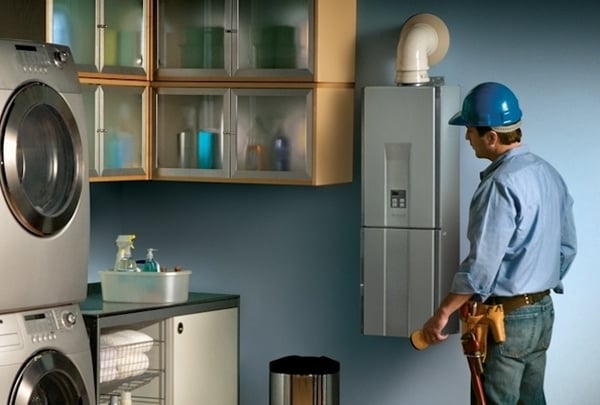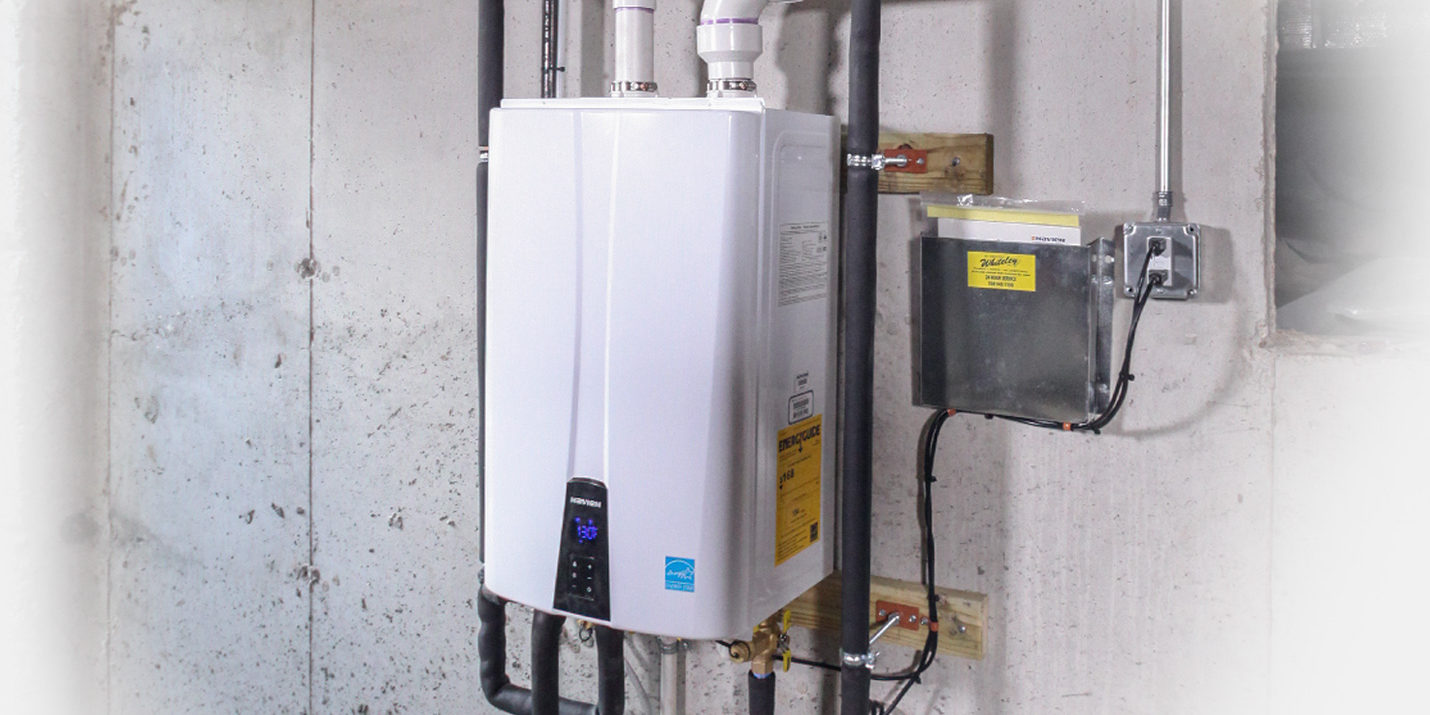Presented here underneath you can discover some dependable insight in regards to 5 Benefits of Tankless Water Heaters.

In a globe where comfort and effectiveness reign supreme, it's not a surprise that property owners are constantly in search of smarter methods to manage their home's power usage and comfort. One innovation that has steadily gained popularity is the tankless water heater. But what exactly makes these systems stand out from the conventional tank-based designs most of us grew up with? Let's dive in and explore the advantages of tankless water heaters, aiding you make a decision if it's time to make the switch in your house.
Introduction
Photo this: you enter the shower after a long day, anticipating a relaxing waterfall of warm water, only to be welcomed by icy beads since the last individual utilized it all up. Sound acquainted? Traditional hot water heater store a fixed amount of hot water, implying you're at the mercy of that container's supply. Tankless systems, on the other hand, heat water as needed. No more running out mid-shower, no more wrestling with schedules just to guarantee warm water is available.
Comprehending Tankless Hot Water Heater
What Are Tankless Hot Water Heater?
Tankless hot water heater, sometimes known as on-demand or immediate water heaters, provide warm water only as it's needed. As opposed to storing gallons of pre-heated water, these units kick into action the moment you switch on the faucet. Water travels through a warmth exchanger, warming up in real-time, suggesting you obtain a nonstop circulation of warm water without the requirement for a big storage tank sitting lazily by.
Just how Do They Vary from Typical Systems?
Typical heating systems hold a tank of hot water, making use of energy to maintain that storage tank at a regular temperature level. Tankless devices remove the standing supply, reducing thrown away power and the bulky footprint of a large cyndrical tube. Basically, you're updating from a "accumulation" attitude to a "made-to-order" approach.
Usual Sorts Of Tankless Devices
Tankless hot water heater generally come in two ranges: gas and electrical. Gas versions tend to supply higher circulation rates, suitable for bigger homes, while electrical versions usually offer smaller sized homes and are generally simpler to install. Additionally, some systems are made for point-of-use (offering one component) while others can manage the whole home's hot water demands.
Trick Advantages of Tankless Hot Water Heater
1. Countless Warm Water Supply
Ever before needed to set up showers so everyone gets their fair share of hot water? With tankless, that becomes a thing of the past. As long as the heating system's circulation capability isn't surpassed, you can take back-to-back showers without developing into a popsicle.
2. Power Efficiency and Price Savings
Say goodbye to heating up a titan storage tank's well worth of water and maintaining it warm all day. Tankless heaters decrease standby power losses, which can decrease energy expenses. While the first expense may be greater, the long-lasting savings commonly warrant the investment.
3. Space-Saving Design
If your home is short on storage space, getting rid of the cumbersome tank liberates beneficial area. Tankless systems are compact and can often be installed on walls, tucked away in edges, or set up in tight energy wardrobes without hogging the whole room.
4. Longer Life expectancy
A properly maintained tankless hot water heater can outlast its tank-based relative. Standard containers might last 10-15 years, while tankless versions can keep chugging along for two decades or even more, making them a strong investment in time.
5. Improved Water High Quality
Saving water in a storage tank can occasionally lead to sediment buildup or a somewhat "off" taste. With tankless systems, fresh water is heated up right away, decreasing the possibilities of sediment buildup and potentially using cleaner-tasting water.
Factors to consider Before Switching
Though the benefits are engaging, it's wise to think about a couple of aspects prior to fully dedicating.
First Financial Investment Prices
Tankless heaters commonly include a higher ahead of time price. Between the unit itself and prospective setup adjustments, the initial price may give you sticker shock. Yet bear in mind to watch it as a lasting financial investment.
Setup Demands
Depending upon your home's facilities, you might need added electrical capability or gas line upgrades. Ensure you recognize the installation needs and speak with a specialist to stay clear of shocks.
Assessing Your Home's Water Usage Patterns
If your household concurrently makes use of multiple fixtures with high hot water demand, make certain the system's circulation price fulfills your demands. Understanding your use patterns aids you select the right size and kind of tankless heater.
Upkeep and Treatment Tips
Tankless systems are fairly reduced upkeep, yet they aren't set-it-and-forget-it appliances.
Routine Cleansing and Descaling
Difficult water minerals can accumulate in the heat exchanger, impacting efficiency. Regular descaling (usually suggested every year) maintains the unit running at peak performance.
Annual Expert Examinations
A yearly checkup from an expert makes certain small issues are captured early. They'll assess the device's performance, try to find leakages, and help preserve optimum efficiency.
Making Certain Proper Air Flow
For gas models, correct air flow is important to safely get rid of exhaust gases. See to it airing vent systems are clean and properly mounted to avoid any kind of prospective safety risks.
Comparing Different Brands and Models
Not all tankless water heaters are developed equivalent.
Investigating Dependable Makers
Try to find credible brand names with a background of creating high quality units. A dependable maker typically supplies better client support and longer service warranties.
Checking Out Reviews and User Feedback
Customer evaluations and feedback from next-door neighbors or buddies who have actually gone tankless can provide beneficial understandings. In some cases, real-life experiences can be a lot more informing than marketing pamphlets.
Installment: DIY or Expert?
While some home owners relish tackling jobs themselves, tankless setup may not be the very best time to burst out the tool kit.
Pros and Cons of DIY Installation
A DIY install could save cash, yet it includes risks. Wrong setup can cause inefficiency or safety worries. If you come in handy and have experience, it might be possible-- yet proceed with caution.
When to Call an Expert Plumbing Professional
For the majority of, calling a professional makes sure every little thing's done correctly. A specialist plumbing understands neighborhood codes, sizing requirements, and airing vent parameters, decreasing the risk of problems.
Maximizing Performance
You have actually invested in a tankless system-- currently maximize its efficiency.
Ideal Temperature Level Settings
Many people set their devices between 120-140 F. Adjusting the temperature level can enhance comfort and cost savings. Experiment to discover a wonderful place that does not lose energy.
Coupling With Low-Flow Fixtures
Intend to extend your unit's capabilities? Think about setting up low-flow showerheads and taps. They reduce water use, permitting your tankless system to supply a constant stream of hot water without stressing.
Environmental Effect
Tankless water heaters line up with greener living goals.
Decreased Carbon Footprint
By utilizing less power and just heating water as required, tankless systems can reduce your home's carbon impact, reducing your ecological impact.
Preserving Natural Resources
Less power consumption and much less squandered warm water translate right into fewer natural deposits being used, an environmental win-win.
Who Profits The Majority Of from Tankless Heating units?
The appeal of tankless heating units is that they can match a range of homes.
Large Family Members vs. Single Occupants
Big family members might love the countless hot water supply, while solitary passengers value the power financial savings from not heating an entire tank for just one person's morning shower.
House Owners with Minimal Room
If your home is short on square video, shedding the large storage tank frees up space for other essentials-- or maybe simply more breathing space.
Eco-Conscious Customers
Going tankless aligns with environmentally friendly worths, guaranteeing you're not losing energy or sources.
Future Patterns in Tankless Water Heaters
The world of home devices is ever-evolving, and tankless water heaters are no exception.
Smart Home Integration
Envision readjusting your water heater's temperature via an app or obtaining upkeep signals on your phone. As smart home tech advancements, we'll see even more connectivity and comfort.
Improvements in Innovation
R&D is frequently improving warmth exchangers, making units more reliable and sturdy. Future versions may be even quieter, more compact, and far better matched for differing climates.
Conclusion
Picking a tankless hot water heater is more than just updating your home's hot water system; it's investing in lasting comfort, power performance, and a greener way of life. By considering your household's water use, being mindful of setup needs, and devoting to normal upkeep, you can appreciate a consistent stream of hot water without the baggage of a cumbersome container. As modern technology progresses, you can expect even smarter, extra effective tankless solutions that not just make your life simpler but likewise benefit the earth.
Pros and Cons of Tankless Water Heaters
Tankless Water Heater Pros
Saves Energy: Simply put, you re spending less energy to create hot water, so your total carbon footprint goes down, not to mention your bills. Lasts Longer Than Storage Tanks: Storage tank units need to be replaced every 15 years or so. But tankless units? They can last for 30 years before they give out on you. Constant Hot Water: Need to take a shower and don t want the water running cold? Awesome it won t. The water will stay hot the entire time because it creates hot water on demand. Saves You Money: Less water usage equals less money. Beyond that, you re not paying to keep water hot 24/7. Those savings add up quickly. Better for the Environment: Less water waste is better for everyone. It saves you money, but it s also environmentally conscious at the same time. Tankless Water Heater Cons
It Can Take a Minute: Depending on your specific unit and its placement, it can take anywhere from 10 seconds to 2 minutes to fully heat up. Because there s no storage tank, it heats water as you need it. Upfront Purchase Price: While we talked about their longevity, there s sticker shock when you look at brand-new tankless units to install. It pays for itself, but it s still a big chunk of change at first. Has its Limits: If you run multiple appliances at once, such as the dishwasher, washing machine, and maybe you take a shower at the same time, there might not be enough hot water. https://www.airsouthnow.com/blog/water-heater-service/pros-and-cons-of-tankless-water-heaters/

I hope you enjoyed reading our part on Six Benefits of a Tankless Hot Water Heater. Many thanks for taking time to browse our piece of content. Enjoyed our review? Please quickly share it. Help others discover it. I value your readership.
Schedule Free Estimate